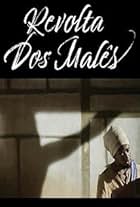Advanced title search
- TITLES
- NAMES
- COLLABORATIONS
Search filters
Enter full date
to
or just enter yyyy, or yyyy-mm below
to
to
to
Exclude
Only includes titles with the selected topics
to
In minutes
to
1-24 of 24
- Martina, who has Alzheimer's, has been searching for her grandson for over three decades. Discovering he is in Brazil, her long and solitary journey becomes an intense struggle against time and oblivion.
- A documental chronicle on daily life in a Rio de Janeiro community a year after the start of Police Pacification Unit (UPP).
- Shot over a ten-year period, Diary is not only the political, professional, and personal diary of a man, but is a testimony on the turbulent reality of a war-torn country, Israel. In six chapters, Perlov travels to Tel Aviv, Paris, London, and finally to Brazil, where he was born. The film is also a family diary in which Perlov records the coming of age of his two daughters, Yael and Naomi.
- Muslim Africans, brought from present-day Nigeria and enslaved in Brazil, rebel against oppression. Guilhermina tries to free her daughter.
- In search of her father, an ex-political prisoner who refuses to talk about the past, the filmmaker untangles her grandmother's intimate writings in an attempt to understand the story of their family against the brutal backdrop of the Brazilian military dictatorship (1964 - 1985).
- During the selection process for a film, characters and actors mix on the scene, showing the insecurities, dreams and struggles of those who propose to make a living from Art.
- Diversity is the theme of the documentary Singulares, directed by Patricia Travassos and produced by Prosa Press. The film connects six personalities from Brazilian arts and sports who transform supposed vulnerabilities into power, using the body as a guiding thread. The body as knowledge, as speech, as discourse. The body full of particularities from which there is no intention of escaping, on the contrary: to occupy, resist and overflow. The political body, the playing body, the one that creates, surprises, entertains, that makes people reflect, that carries causes. The body as ancestry, a place that holds wisdom from other times, and when occupied with affection and awareness, points to a more colorful and diverse future. Singulares addresses themes such as art, politics, inclusion, ancestry, representation and visibility through multidisciplinary artists and personalities who have become a source of inspiration and reference in contemporary times. CHARACTERS: Ney Matogrosso is a Brazilian cultural icon. Artist considered one of the precursors of androgyny as an aesthetic. With a countertenor voice and a sinuous, bouncy body, he was a counterpoint to Brazil's leaden years, having gained respect in extremely conservative times and influenced generations since his performance in the group Secos & Molhados until today. Rebeca Andrade is the first Brazilian gymnast to be Olympic champion, the first Brazilian athlete to win two medals in the same edition of the Olympic Games, not to mention unprecedented achievements in world championships. Born and raised in Guarulhos, she left home at the age of 9 to train and, after successive injuries, won titles dancing the funk Baile de Favela. At the most recent world championship, in 2023, she was part of a historic artistic gymnastics podium, formed for the first time by three black women: herself and two Americans: Simone Biles and Shilese Jones. Raphael Jacques, with a degree in fine arts and social sciences, transforms himself into Alma Negrot - a drag queen created from discards, courage, boldness of materials and symbols. Each day, Alma is one, and Rapha is another. His body is an instrument of what he calls poetic terrorism. It is through him that he invents other ways of being in the world. "I don't need to ask for respect by raising signs. My body carries a political charge." Léo Castilho is a deaf man who uses his body as his speech. Not only where he communicates, but beyond, where he reflects on the world around him. Despite society imposing a certain type of path for people with his condition, Léo goes beyond these limits, becoming a poet, actor and a great admirer of music. 8 years ago, he decided to stop using hearing aids so that, in silence, he could hear himself better and discover his own sounds. He hears so much through touch and what he sees and what he feels, that he is able to work with music. In contact with other listening artists, he creates a third way, impossible to achieve without the diversity of experiences and perceptions of the world. Mona Rikumbi is the first black woman in a wheelchair to dance at the São Paulo Municipal Theater. Even though she discovered that she has Neuromyelitis Optica at the age of 30, Mona did not let this condition paralyze her. She is a body artist, actress, dancer and activist, and broke with the stereotypes that awaited her, even rejecting her own prognosis, which gave her little time to live. Katú Mirim makes us reflect on the body as a place of ancestral knowledge. She is an indigenous woman who returned to her origins late, having been adopted at a young age by a white family. She says that from a very young age her dreams, visions and intuitions already reflected the heritage of her people. Katú subverts current logic by using rap to leave messages for the people of the future, while at the same time honoring their past.
- Four 15-year-old friends want to lose their virginity. They think about paying a prostitute, but none of them has any money. The boys do everything they can to save money as they face their school commitments.
- The italian immigration to Brazil during the XIX Century. Today Brazil has more than 30 million Italian descendants (15% of population), 8 million speaking the Venetian dialet, more than in Italy itself.
- For six decades, the cinema of Nelson Pereira dos Santos has projected Brazil into the eyes of the world. The film shows us the man behind the camera. Through his legacy it is possible to see all the richness of Brazilian culture.
- A portrays of the period in which Brazilian humor had fewer limits (1986-2003), free from military dictatorship.
- The documentary Migliaccio - O Brasileiro em Cena follows the path of those who take risks for the art, either as directors, as writers, as scenographers and even as costume designers. The Oscarito trophy received by Flávio Migliaccio in 2014 Gramado Film Festival crowns a career enmeshed by many threads. Since Migliaccio has performed in different fields of art - from cinema and theater to literature and drawing -, the documentary creates varied visual interventions to enchain the narrative, in addition to the interviews and archive pictures, such as a shadow play to represent his humble childhood, and to the cartoons the artist drew to portray his existential questions in his ranch in Rio Bonito (State of Rio de Janeiro). Images and stories that aim to show a professional and personal life pervaded by possibilities and attitudes, both artistic and political.
- The experiences (and resistance) of the great Brazilian comedians during the military regime (1964-1984).
- Brazilian Amazonian writer Dalcídio Jurandir was born in 1909 and died in 1979. He wrote 11 books, ten of them on the Island of Marajó and its inhabitants. His main character is named Alfredo. Dalcídio tells his story from his childhood in Cachoeira do Arari to the mishaps of adult life in Belém, culminating in his return to the island. In 1939, at the age of 30, fresh out of prison for protesting against the Brazilian dictatorship, Dalcídio accepted a job that no one wanted: to travel the world's largest "sea-river island", inspecting public schools. During this trip, he writes letters to his wife, Guiomarina, and to his nine-month-old son, Alfredo. In 2017, the filmmaker Letícia Simões travels to Marajó searching the characters of Dalcídio.
- Brazil doesn't live under any declared war but many of its young men chose to fight abroad. The film will follow the lives of Brazilians that are engaged in other national armies or mercenary forces. What is there behind this motivation? The desire to "correct" the world; the will to participate in worldwide interest events; the crave for adventure? To understand the contradictions inherent to this choice is surely a difficult task, but is also a way of feeling contemporary Brazil.
- Rio de Janeiro, May 1981. DOI-CODI, the body responsible for the repression during the days of Brazilian military dictatorship, organized the "Mission 115", which aimed to "observe" closely a show in honor of International Labor Day, in the show house Riocentro. However, the mission failed to highlight its main objective: to carry out a terrorist attack by incriminating leftist revolutionary groups and thereby sabotaging the country's re-democratization.
- CALLADO is a biography about the writer and journalist Antonio Callado. The documentary reminds us of the fight for democracy , the commitments with Brazil and the shocking facts about the writer's life. His famous pieces that went throughout the XX Century also stand out in the film, today they represent an alarming truth about the dark era of our times. His coworkers, friends and family such as his widow wife and his daughter,Ana Arruda, try to explain in this movie who was Antonio Callado. But, at the end, there's a doubt that stands out. Maybe the real Callado is not the person we think we know, from real life, but the person who lives stuck in his book, being set free by the power of his reader's imagination.




















